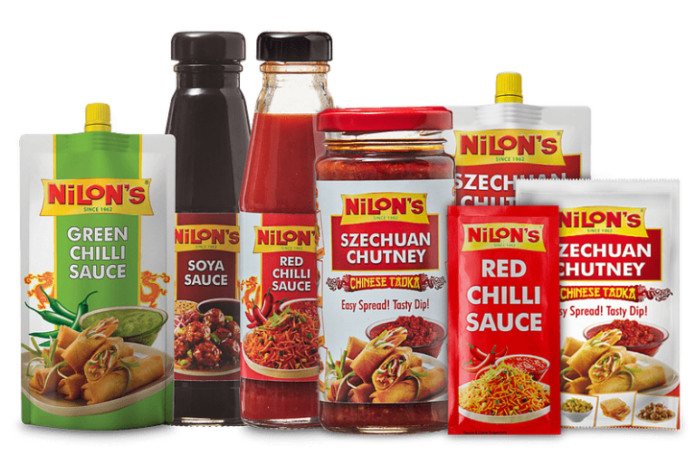
Nilon’s: A Story of Two Brothers Who Launched India’s Favourite Pickle Brand From Their Dining Table
Date:

Share post:
Suresh Sanghavi’s family had 1500 acres of lemon orchards in Maharashtra’s Jalgaon district. During World War II, the Sanghavi family supplied lemon syrup, lemon juice, and lemonade for the Indian and British armies. Their products boosted the health of the armies and increased their immunity. Unfortunately, the Maharashtra Agricultural Lands Act, 1961 put an end to the family’s lucrative food processing business. Due to property ownership regulations, the family lost 90% of their land. But, despite their prior food production experience, the Sanghavi family had no idea that this was only the beginning.
As a result, the two brothers gathered a variety of fruit and began combining, matching, and trying out different items, using their dinner table as their laboratory. Suresh made squashes from pineapple, mulberry, mango, and other fruits using fresh products from family-owned plantations. They gradually started producing and selling jellies, jams, ketchup, and other items under the Nilon’s brand.

The term was a play on Nylon, which was all the craze at the time because it had recently become the world’s first human-made fibre and was transforming businesses and lifestyles all over the world.
Nilon’s On The Verge Of Being Closed Down Due To Heavy Losses
Nilon’s was founded in 1962, but it continued to lose money until 1965. Nilon’s failed to grab the interest of customers despite launching 50 products. After years of losses, Prafful asked his brother, Suresh, if they should consider shutting down the business. Suresh remained steadfast and confident that Nilon’s would recoup its losses from the same sector in which the investments were made. And he was adamant about not doing any other work.
Things began to look up in 1966, when the team added homemade pickles to their collection.
“During those times, the government invited enterprises to submit tenders to sell their goods at military canteens. As a result, the brothers applied for all four pickle varieties: chilli, mango, mixed, and lemon. Due to the tiny size of the company, the pricing was quite competitive. Thankfully, they were awarded all four contracts for the next two years,” Dipak explains.

Nilon’s Launches Best Selling Homemade Pickles
After bringing homemade pickles to their assortment of products a year later, in 1966, Nilon’s went gold. Mango, mixed, lemon, and chilli pickles were among the items sold by the brothers. Because they were a tiny firm, they were able to secure government contracts by offering their pickles at low prices. They constructed a manufacturing plant, which was financed by loans, and began mass-producing pickles. Pickles made by Nilon were offered in army canteens and accounted for 95% of the company’s total sales. Dipak Sanghavi, Suresh’s son and managing director and CEO of Nilon’s, said that pickles have become an important part of people’s life for centuries.
Dipak adds that the recollections of eating Nilon’s pickle are still cherished by the military people he communicates with today. “The pickles were ingrained in the life of several generations. To date, we have continued to sell our pickles to military troops, but competitors are now sharing the space as well,” he says.
Another notable Nilon’s product is tutti-frutti candied papaya, which was introduced to the market in 1970 following years of testing by corporations. Rasna, a refreshing drink popular in the 1980s, was a huge success for the brand. Nilon’s was primarily known as a pickle-making enterprise that underwent different transformations over time. Nilon’s products bring in a lot of revenue for the company’s dealers and distributors. Dipak went on to say that the company’s personnel are doing their best to deliver the best flavour to customers and will continue the legacy of taking the brand to new peaks.

After his father passed away in 2001, Dipak Sanghavi carried over the family business. His uncle was in charge of the farmers at the time, while Dipak was working on his post-graduate degree. With no prior expertise, he had to step in early. Nilon consistently won hearts with its products under his skilled leadership and grew into the multi-billion-dollar corporation it is today. To appeal to younger generations, Nilon’s has expanded its product line to include pasta sauce, Schezwan chutney, pastas, ginger-garlic paste, and other sauces.
The family legacy continues to grow
What began as lemon orchards during World War II evolved into an experiment by two brothers, Suresh and Prafful Sanghavi, on a lowly dining table. Suresh’s son, Dipak Sanghavi, became the Managing Director and CEO of Nilon’s, and the company grew to be a multi-billion dollar conglomerate. Despite a plethora of hurdles, India’s favourite pickle company rose to the top and earned a special place in the hearts of Indians and people all over the world. Nilon’s, like Nylon fabric, is a craze and a wave today.
People adore Nilon’s pickles since they are associated with many families’ sentiments. People develop an emotional tie to Nilon’s pickles, and as a result, their value has increased with time. For many, it evokes feelings of nostalgia because it has been a part of their lives for many generations. The company has been developing a variety of pickles using a variety of technologies in order to enhance the flavour of the dish. Nilon’s pickles and gourmet foods are among the best in the industry, adding value to the brand.
